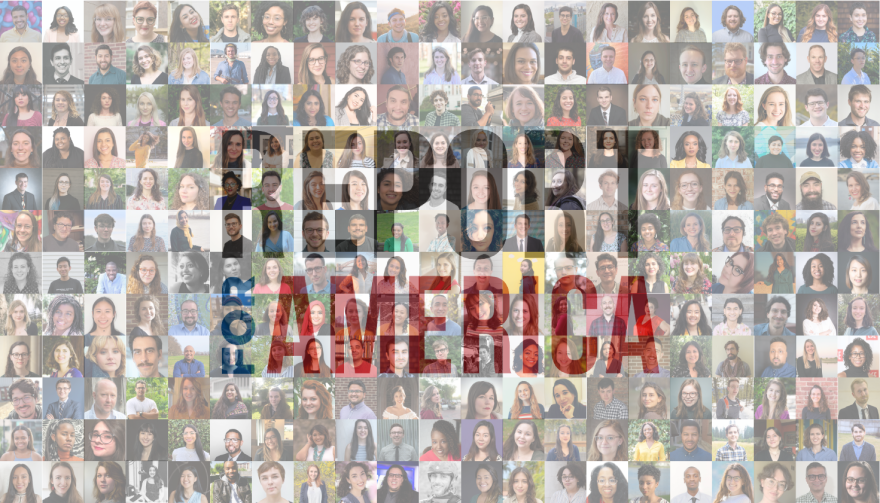Julie Reports for America

Improving our coverage of Canyon County and the Latina/o/x community is critical in our effort to expand daily news coverage and our commitment to statewide affairs. We need your help. Public radio is built on listeners who contribute to local journalism.
Between now and June 30, a Boise State Public Radio Broadcast Society member will match every donation up to $15,000. All gifts up to $15,000 will be doubled.
Please consider making a contribution to Julie Reports for America and get to know Julie a little better below:
A Little About Julie

Originally from France, Julie Luchetta moved to the U.S. to study the borderlands and the rich communities that inhabit them. After living in Paris, NYC, Mexico, Mississippi and East Africa, Luchetta settled in Tucson where she worked as a researcher, reporter, social worker and educator. Working with people facing homelessness, particularly those in the LGBTQ+ community, she recognized the importance of listening to underrepresented voices and bearing witness to the wide experiences of American life.
"I am continuously inspired by investigative reporters, documentarians, photographers, writers and fact checkers who hold individuals and authorities accountable. I want to be a journalist because, in these uncertain times, being part of a community of record keepers is the only thing that makes sense to me."
YOU can help bring Julie to Canyon County with your donation today!
Report for America is a national service program that helps put journalists in local newsrooms across the country to report on under-covered issues. An initiative of the nonprofit media organization The GroundTruth Project, it is structured to harness the skills of an emerging group of journalists, plus the creative spirit of local news organizations.
How does it work?
Interested news organizations apply and make the case that they have urgent coverage gaps and a plan on how a Report for America corps member would be deployed. Then, talented emerging journalists apply to serve these communities. RFA screens the large pool of applicants and chooses three to five well-qualified candidates to present to the local news organization. The news organization makes the final selection. The term is one year with an option for a second year (most corps members end up serving two years).
What news orgs qualify?
Newsrooms who:
- are committed to providing objective, civically important local journalism
- have an important need or gap to fill in terms of under-covered issues, communities or geographics
- provide good editing and mentoring
- can provide the local funding match – the part of the corps member’s salary that Report for America doesn’t pay
How is a local Report For America corps member funded?
Report for America pays about half the salary. The other half is paid by the local news organization, who often raises half of its half from local donors, small and large. Breaking it down:
- RFA pays 50% of the salary the first year, with a cap of $25,000 for emerging reporters (less than 8 years’ experience) and $30,000 for experienced reporters (those with 8 or more years’ experience)
- RFA pays 33% of the salary the second year, and 20% the third year, with no cap.
- RFA does not pay benefits, the news organization pays those expenses
Has Boise State Public Radio worked with Report for America before?
Rachel Cohen was Boise State Public Radio’s first Report for America corps member. She started in 2019 covering south central Idaho and continues to report in the region on healthcare, agriculture, immigration and other important issues that we weren’t able to cover before she arrived. Rachel has completed her three years with RFA and will continue as a full time, station-funded reporter.
Where does Report for America’s funding come from?
Report for America is funded by foundations and individuals. There are no partisan or ideological strings attached. All organizations or individuals that fund Report for America understand RFA supports non-partisan, non-ideological, local reporting.

